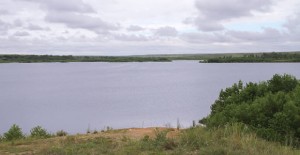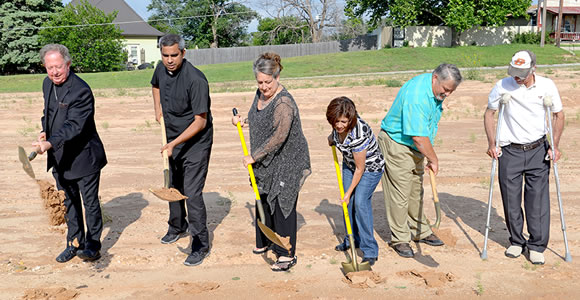By Roger Estlack, Clarendon Enterprise
Conditions at Greenbelt Lake have improved, but more rain is needed get the reservoir completely out of drought status.
Greenbelt General Manager Bobbie Kidd said this week the lake has come up 11 feet for the year and has actually moved out of Stage Four drought conditions but is not quite out of Stage Three.

“We lack about a foot and a quarter before we get to Stage Two,” Kidd said.
The lake entered each drought stage based on elevation triggers, and those triggers reverse as the lake level rises. Making it back to Stage Two will be an important benchmark for Greenbelt because that’s when the water authority will lift restrictions on skiing and recreational boating, Kidd said.
The lake has two temporary boat ramps open for fishing boats at Kincaid Park, and Kidd said the additional eleven feet in the reservoir has improved Greenbelt’s traffic somewhat, but more important is the quantity of water the lake now holds.
“We nearly doubled our capacity going from about 7,700 acre-feet to more than 14,000 acre-feet,” Kidd said. “That puts us at nearly five billion gallons.”
In addition to exceptional rainfall since the spring, Greenbelt has been helped by efforts undertaken months ago to clean out the channel of the Salt Fork of the Red River, which feeds the lake. The water authority cleared out a 1.6 miles of the river, making a channel four feet deep and about 20 feet wide, which has helped get runoff water into the lake.
“There was a lot of water just standing before that,” Kidd said.
Greenbelt Water Authority has added a lot of groundwater capacity to its operations since the lake level dropped nine feet in 2011 alone. Since then five wells have been put online in Clarendon and four wells have been located on Kelly Creek, allowing about 40 percent of water consumption to be coming from groundwater instead of the reservoir.
It will take about eight more feet of water in Greenbelt to get completely out of drought status, but Kidd said he thinks people have learned a lot during the drought.
“People are getting smarter about water usage,” he said. “I think even if the lake was full you wouldn’t see water being wasted.”








Reader Comments